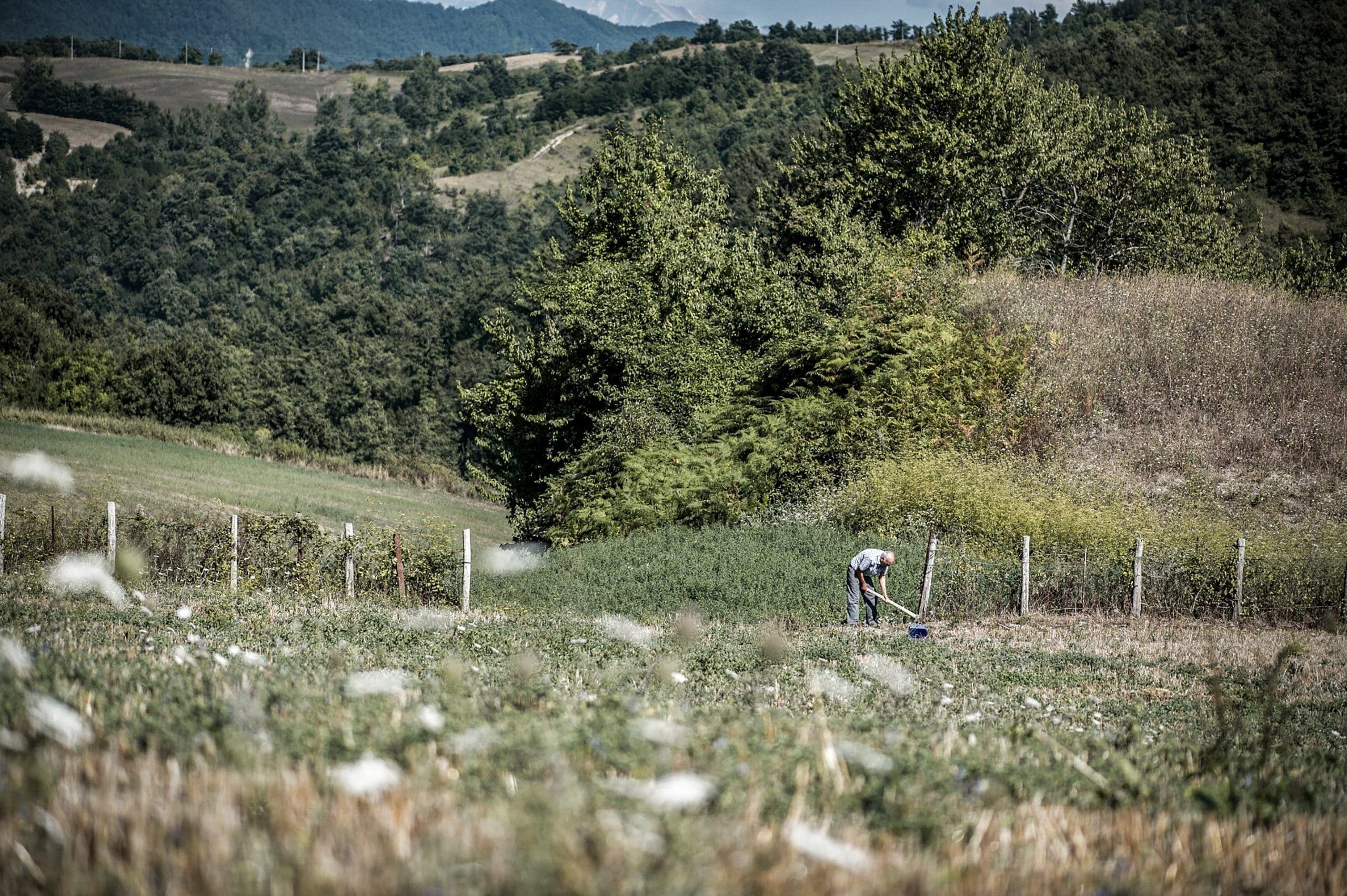We asked our authors and our network to answer three questions on how they are coping with this challenging moment in history. Here is the interview with the photographer and author of DooG Reporter ANDREA CALANDRA.
Is there any beauty in the world, even banal, that you have rediscovered in this period?
I have often found myself thinking about what, for me, is a place of the heart. It is undoubtedly linked to experience and affections that have become inextricably linked to physical places. So I can say that as human beings, the most beautiful thing is family. From there, so many other things germinate, such as love, affection and changing your perspective on the world. The areas of Upper Umbria, where I spent entire summers at my grandparents’ house as a child, are places that materially had a substantial impact on the formation of my personality, I realise, now more than ever since I am physically prevented from going there. They are particularly isolated, with four houses, now primarily depopulated in the hills between Umbria and Marche. That is where my 94-year-old grandfather Renato lives, who every year welcomes us into his big house and takes us on excursions to discover places like ruined houses, and forgotten paths, telling us about when those places were alive. Of the now defunct families who lived in those houses, of their stories, of the war, which came so many forgotten tragedies.
I would love it if one day, my daughter, who is only one year old, would discover the nuances as I have over the years, but that does not necessarily happen; often, the opposite happens. After all, life is also this, a continuous change in which everything has an end to give rise to something else. As a photographer, I have always looked outside, in places very different from what I recognise, and I think I will continue to do so. I aspire to tell what is closest to me, but I am still looking for the right way to do it. I greatly admire those who do it naturally, especially W. Eugene Smiths’ photographs of the family, one of my favourites.
How do you think your profession has changed or will change?
I ask myself this all the time. Indeed, professional photographer is going through a new period of intense changes due to the Coronavirus, which have questioned almost everything. The golden age for professionals in all fields ended over twenty years ago. I have never met him! I like to imagine the peak of this golden age when the photograph on the cover of National Geographic, Afghan Girl by Steve McCurry, came out in June 1984; I would have been born exactly one year and one month later.
It is challenging to say how it will change; it also depends on the different areas. The image will continue to play an essential role in the future of communication at any level. However, I am pretty sure how this will affect professionals is challenging to say. Also because the Italian market is entirely out of step with the American and European markets in general, in a negative way, unfortunately. The strange thing is that we continue to generate photographers, authorial reporters and image artists who are crazy. But the few valid realities still exist; I think they remain a closed circuit that struggles to reach channels that flow into the general public, even the less specialised ones. I mean, taking a great classic with which I am familiar, a book that I love very much, The Conscience of Zeno, it is as if this great work only circulates among literary circles, bookshops, etc., because the general public cannot be reached. Anyone can read and understand it at various levels of depth, re-read it and discover more. The same happens with music. Perhaps this short circuit stems from the fact that photography is still a subject in transformation, very young compared to other arts.
I continue to believe in it; I have recently embarked on a journalistic path, again clearly related to photography.
A picture, a book and a song that represent this period for you.
For the picture, I choose Girls running home by William Albert Allard, a photo from 1967, which represents for me the word home, with all the positive meanings of the term in all respects, as opposed to what we experienced during this period because, in the end, I am an optimist.
The book, I would say Edgar Allan Poe’s Tales of the Grotesque, which gave me similar feelings to those I experienced in some of these lofty and timeless days during quarantine.
The song Leave by R.E.M., both for the lyrics and the meaning it can encompass, especially at a time of change like this, and for the music, is a happy melancholy present throughout the album.


